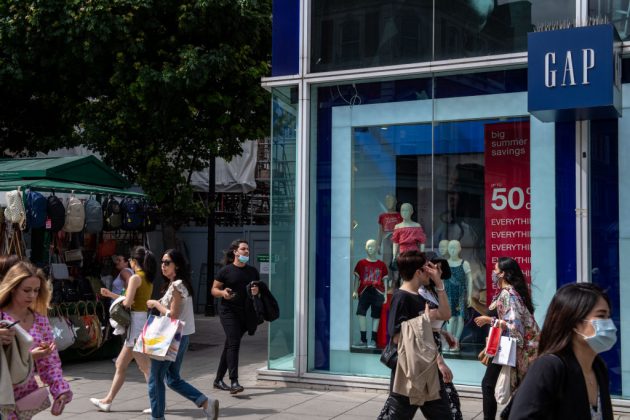Bank expects inflation to breach target and shoot above three per cent

The Bank of England expects inflation to breach their target and exceed three per cent, it warned this afternoon.
Prices are rising much faster than the Bank initially forecast, fuelling concerns that inflation may be much stickier than first thought.
“It is possible that near-term upward pressure on prices could prove somewhat larger than expected”, the Monetary Policy Committee warned in minutes from their latest meeting published today.
Read more: UK inflation jumps to 2.1 per cent in May as clothing and fuel prices rise
However, the MPC stressed that rapid price rises would only last for a “temporary period”.
The warning comes as latest CPI data shows UK inflation is already running higher than the Bank’s two per cent target. Prices rose 2.1 per cent annually in May, the highest increase for two years.
Martin Beck, senior economic advisor to the EY ITEM Club, says: “The risk of the MPC being rushed into a major change of tone, or a move in policy, anytime soon looks low.”
“Inflation could pick up even more. But with higher prices expected to be primarily driven by energy and commodity, the committee stuck to the view that above-target inflation should be temporary.”

Analysts have stressed that a more long-term view is needed in order to establish if inflationary pressures are likely to persist.
“We will only really be able to get an idea whether inflation is a flash in the pan or not at the back end of this year, at which point talk of transitory factors will be starting to wear thin” noted Laith Khalaf, financial analyst at AJ Bell.
Outlook for UK economy improves
The MPC’s outlook for the UK economy was more upbeat, driven by a better than expected economic rebound triggered by the easing of Covid prevention measures and the success of the UK’s vaccination programme.
The MPC “revised up their expectations for the level of UK GDP in 2021 second quarter by around 1.5 per cent”. However, “output in June is expected to be around 2.5 per cent below its pre-Covid 2019 fourth quarter level.”
Susannah Streeter, senior investment and markets analyst Hargreaves Lansdown, warned that labour shortages are prompting companies to cut back on services, which “could be a drag on growth.”
Bank keeps rates at record low
The BoE kept interest rates at a record low 0.1 per cent.
The scale of government and corporate bond purchases through the Bank’s quantitative easing programme remained unchanged at £875bn and £20bn respectively.
Analysts had expected the latest MPC meeting to be uneventful, with many predicting rates and the pace of bond purchases to stay the same.
Economists polled by Reuters did not expect rates to change as the Bank waits to see if a post-lockdown rise in prices is transitory or more sustained and whether unemployment ticks up after the government winds down its job-protection scheme.
The latest MPC meeting comes as expectations that central banks may act swiftly to dampen inflation are mounting after the Federal Reserve published forecasts showing it may raise rates in 2023 – much earlier than initially predicted.
In his final meeting before departing the Bank, Andy Haldane, chief economist, voted against the majority, favouring a scaling down of the total amount of bond purchases to £845bn.
Read more: City looks to Bank of England for clues on inflation battle plan